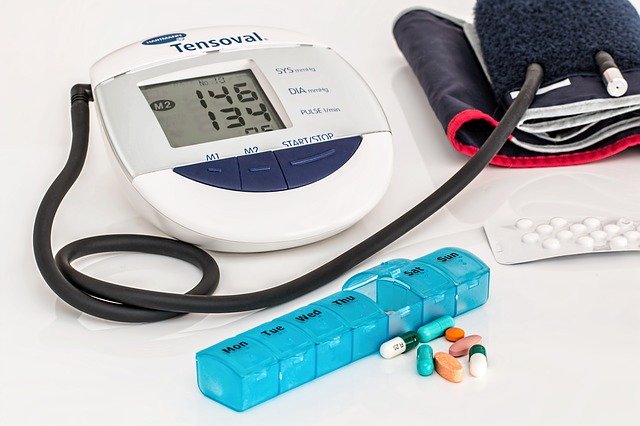One of the most transformative tools today is automation, which reduces manual tasks, speeds up processes, and improves accuracy. So, if you want to avail automation in the healthcare sector then, Auxilio Bits is here to guide you. From medical billing to handling administrative functions, automation offers a solution that empowers healthcare providers to focus on what truly matters—patient care.
The professional of healthcare isn’t just about being effective. Healthcare groups—both payers and providers—are focused on refining health, lowering cost, and providing better access to attention for patients. With RPA, evidence-based care has never been so cooler. Create a highly secure, scalable, and reliable Virtual Workforce to access, process, and retrieve data to make better decisions for your patients.

The healthcare industry is evolving, with technology playing a crucial role in streamlining operations and enhancing patient care.
More than seven hundred and fifty quadrillion bytes of healthcare data is generated daily (Fortune, 2018). Most of the data goes untouched, resulting in missed opportunities to advance the lives and wellness of patients. RPA helps healthcare groups reinvent business processes, facilities, and products offering.

Meeting the healthcare needs of people universally, whenever they need it. We’ll take the pain out of your processes so you can spend more attention for your patients. We achieve this by automating structured processes across your healthcare systems. Working together we can make your procedures pain-free, creating a healthy atmosphere for you and your customers.
In healthcare, managing data, appointments, and billing can be time-consuming. This is where business process automation in healthcare comes in. By automating repetitive tasks, hospitals, clinics, and healthcare organizations we can save time and reduce human error. This automation improves accuracy, making the entire healthcare process smoother and more efficient.
As the healthcare industry is evolving, with technology playing a crucial role in streamlining operations and enhancing patient care. Automation helps to manage the immense data generated in the healthcare sector. Whether it’s handling patient records or automating the scheduling process, technology can ensure that everything runs smoothly without unnecessary delays. It reduces the administrative load, leaving healthcare professionals more time to focus on their patients.
So, if you are struggling to maintain a record of your patients and lack of management hampers your work, then connect with us to experience automation in the field of medicine.
One of the biggest challenges for healthcare providers is medical billing. Processing claims, managing patient records, and coordinating with insurance companies can become overwhelming. RPA in medical billing (Robotic Process Automation) automates these processes, making the entire billing workflow faster and more accurate.
With RPA in medical billing, claims are processed efficiently, and errors are minimized. This automation reduces the likelihood of delayed payments and cuts down on billing disputes. By relying on automation, healthcare organizations can increase their revenue cycle efficiency and ensure that claims are submitted correctly the first time.
Although, being the leading service provider in your region, you are not able to generate optimum ROI, due to inappropriate billing, then do not worry anymore as we will help you to regulate your billing process with automation. For more information contact us.
Beyond billing, RPA in the healthcare industry offers numerous benefits for administrative tasks. Whether it’s managing patient intake forms, verifying insurance, or processing lab results, automation can significantly improve efficiency. RPA in the healthcare industry reduces the need for manual data entry, which is often prone to human error. By automating these tasks, healthcare institutions can save time and resources.
So, are you looking to streamline communication between departments, allowing for faster data transfer and more accurate record-keeping. Then you have landed at the right place. For example, when patient data is updated, the system can automatically inform all relevant departments, ensuring that everyone has access to the latest information.
Healthcare providers are under constant pressure to deliver high-quality care while managing time-consuming administrative tasks. Automation in healthcare frees up valuable time for doctors, nurses, and staff, allowing them to provide better, more personalized care to their patients.
By automating routine tasks such as appointment scheduling, data entry, and billing, healthcare organizations can focus on improving the patient experience. Patients will benefit from shorter waiting times, more accurate records, and faster billing processes, which leads to higher overall satisfaction.
One key concern in the healthcare industry is ensuring the security and privacy of patient data. Automation systems are built with these concerns in mind. By integrating RPA into the healthcare industry, organizations can improve data handling, reducing the risk of security breaches or compliance violations. Automated systems are programmed to follow industry regulations, ensuring that healthcare providers stay compliant with data protection laws.
Automation also offers built-in auditing features, which make it easier for healthcare organizations to track their compliance activities. This means fewer risks and better protection for sensitive patient information.
One of the best aspects of business process automation in healthcare is that it doesn’t require a complete overhaul of your existing infrastructure. These systems are designed to integrate with your current processes and software, making the transition to automation smooth and hassle-free.
Whether your goal is to automate billing, scheduling, or data management, automation tools can be customized to meet your healthcare organization’s specific needs. This flexibility ensures that healthcare providers can adopt automation without any major disruptions to their daily operations.
As the healthcare industry continues to evolve, automation in healthcare is becoming more essential than ever. From medical billing to administrative processes, automation is revolutionizing the way healthcare providers operate. By adopting RPA in medical billing and business process automation in healthcare, organizations can reduce errors, save time, and focus on delivering the best possible care to their patients.
RPA in healthcare also involve moving data between the area where users enter data / interact with the data and the databases where the info is usually stored. These can benefit healthcare companies by making clinical papers handier, freeing up frontend employees by offering self-service and improving expenses.
“The benefits of using robotic process automation to streamline processes is not anything new, while that between streamlined processes, efficiency and reduced costs is commonsensical. If you think about the expected growth of 6.5% for health care costs, according to UiPath, and about the fact at KPMG study shows that robotic process automation can increase savings up to 50%, then you should definitely consider the capacity of automation to bolster cost reduction.” – United Nation, Department of Economic and Social Affairs.
Are you ready to bring automation to your healthcare operations? Contact Auxiliobits today to discover how we can help you streamline your processes and for more information subscribe to our newsletter. So that you can focus on what matters most—your patients.

Follow Us
2024 © All rights reserved by Auxiliobits, Inc.